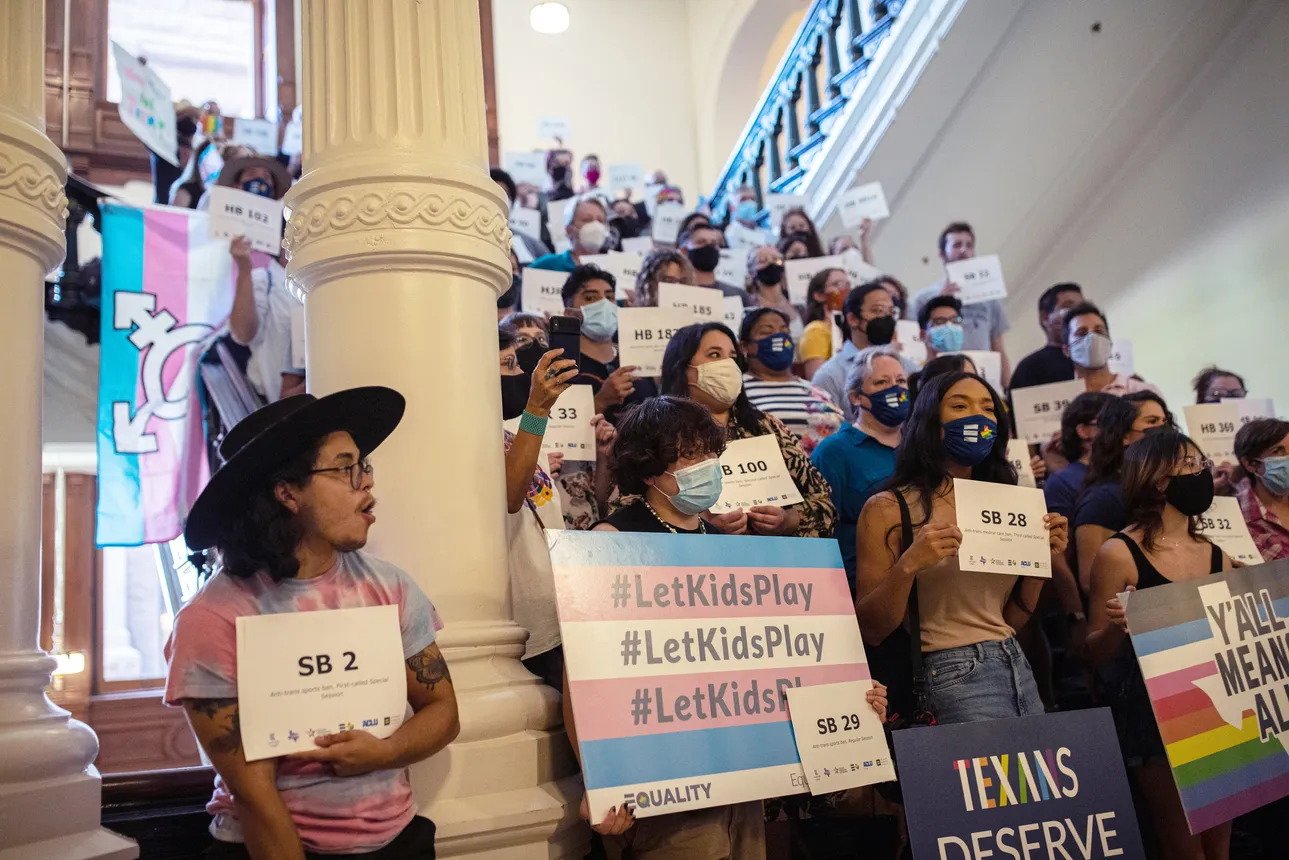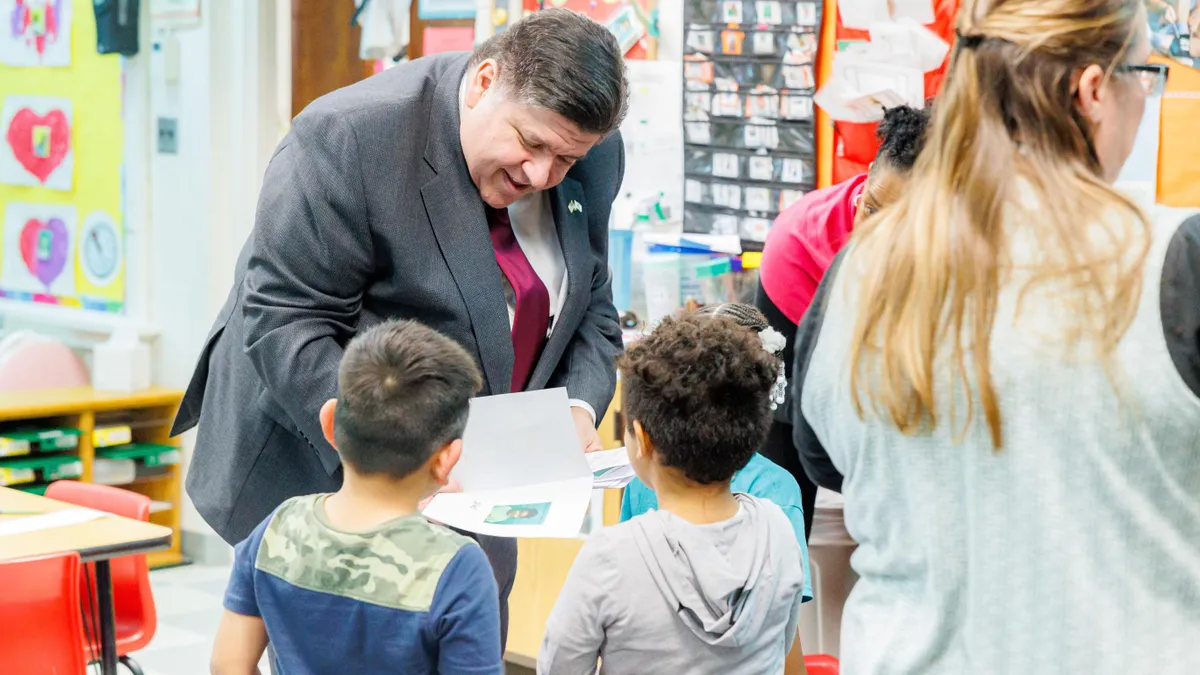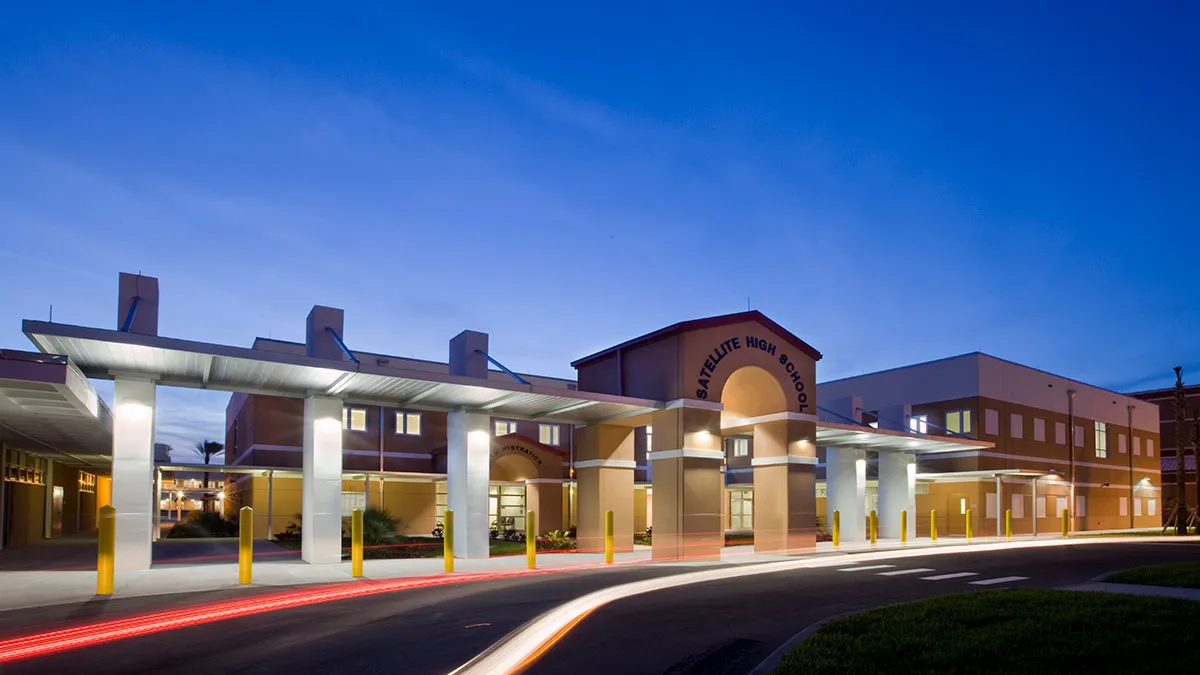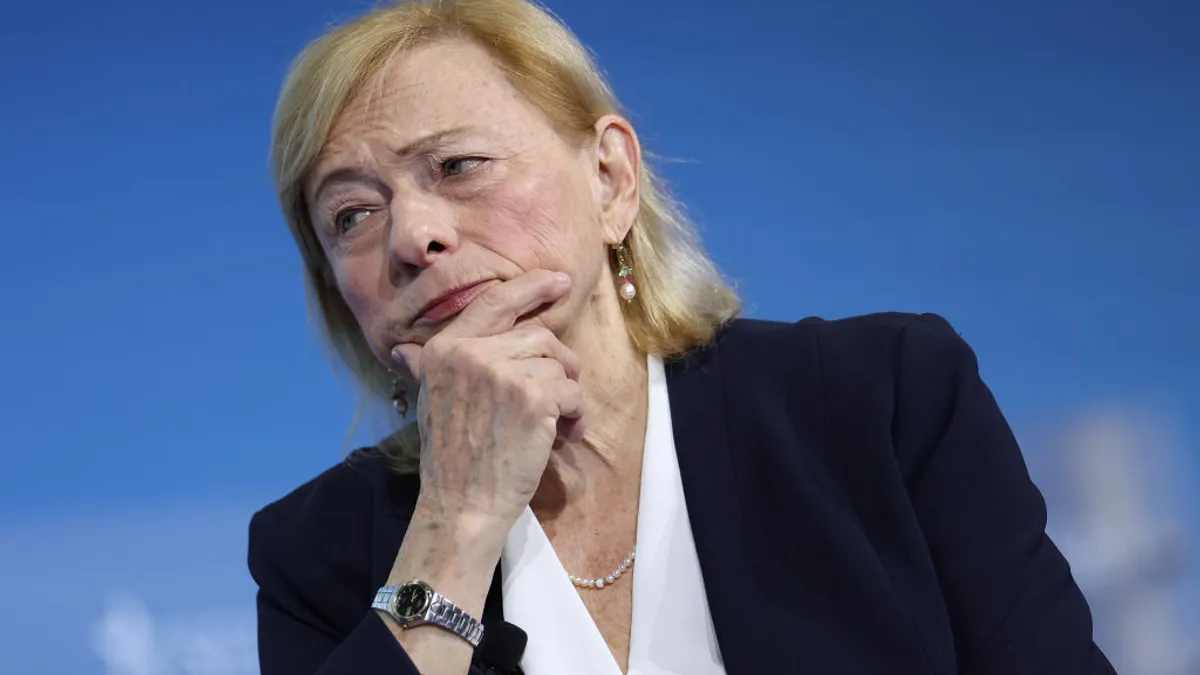Governors in at least 11 states and Washington, D.C., have declared their schools as safe and affirming places for LGBTQ+ students and staff in the past month, joining a broader campaign launched in March by the Gay, Lesbian and Straight Education Network.
The LGBTQ+ education advocacy organization is also calling for affirming books, resources and curriculum in schools as part of the campaign.
"K-12 schools must be safe and inclusive with liberatory learning environments that welcome and affirm LGBTQI+ young people, especially those who are transgender, nonbinary, intersex, Black, Indigenous, people of color, people with disabilities and all communities that experience marginalization," wrote Illinois Gov. J.B. Pritzker in a July 10 proclamation.
Prtizker and Michigan Gov. Gretchen Whitmer, who declared her state as pro-LGBTQ+ on June 30, are the most recent additions to a growing list of Democratic state leaders who have made similar announcements as part of GLSEN’s Rise Up for LGBTQ+ Youth campaign.
“Schools in Maine — and all over the country — must be free of the violence of racism, transphobia, homophobia, sexism, ableism, and all forms of systemic oppression," wrote Maine Gov. Janet Mills in a June 21 letter.
New York Gov. Kathy Hochul and Massachusetts Gov. Maura Healey were the first to declare their support for LGBTQ+ inclusivity, signing their pledges in March. The full list of states with leaders proclaiming their schools as LGBTQ+ inclusive includes:
- Arizona
- Colorado
- Illinois
- Maine
- Maryland
- Massachusetts
- Michigan
- Minnesota
- New Jersey
- New York
- Washington state
- Washington, D.C.
The call for inclusive schools is expected to garner even more gubernatorial support in 2023-24, said a GLSEN spokesperson.
Proclamations oppose recent state laws
The organized effort from Democratic state leaders to support LGBTQ+ students in schools stands in stark contrast to recent laws passed in conservative states regulating school facility access and curricula.
There are so far nine states that have enacted bans against transgender students using facilities consistent with their gender identities, according to the Movement Advancement Project, a nonprofit thinktank that tracks LGBTQ+-related state policies. Six of those were passed just this year, said Logan Casey, MAP's senior policy researcher and advisor, in an email.

In addition, many more laws have been passed restricting curriculum and discussions related to race and/or gender. According to a tracker from PEN America, which was last updated July 3, at least 22 laws have been passed across 16 states limiting those topics in K-12 schools since 2021.
On the other hand, 21 states, Puerto Rico and the District of Columbia have school nondiscrimination laws that protect students based on their sexual orientation and/or gender identity, according to MAP.
What the state proclamations mean for schools
While the governors' public proclamations are not akin to state policy, many of the same leaders have also taken action on LGBTQ+ issues in schools.
Arizona Gov. Katie Hobbs, for example, released her executive proclamation supporting LGBTQ+ inclusive schools the same month she vetoed a bill that would have restricted transgender students from using bathrooms consistent with their gender identities.
Hochul, who was among the first to declare her state as safe for LGBTQ+ students, signed a law in June establishing New York as a "safe haven" for transgender youth.
GLSEN says it plans to continue speaking with the governors who have declared their support for LGBTQ+ students and their local districts about school policies to make sure they are inclusive and non-discriminatory.
The proclamations, which go through various legal channels in governors' offices, also vary in their language. While most express general support for LGTBQ+ students in schools, some also call on residents and localities — which could include school boards — to "adopt laws and policies that prohibit bias-based victimization, exclusion, and erasure."
Florida mayors push back
In addition to governors expressing support for LGBTQ+ students, nine Florida mayors have also been vocal about their intention to protect this student population in schools.
Many of the cities expressing support for LGBTQ+ inclusion in schools also highlight the importance of affirming LGBTQ+ identities and/or call on localities to adopt laws and policies that prohibit their exclusion.
These calls come despite Florida Gov. Ron DeSantis and the state’s department of education standing on the front lines of anti-LGBTQ+ measures in public schools.
Florida has enacted a number of expansive laws and policies related to LGBTQ+ issues in recent years. One heavily regulates school curricula up to grade 12 to exclude topics related to gender and sexuality, for example. Another exempts K-12 staff or students from using pronouns aligning with a person's gender identity.
"The state laws that were recently passed conflict with this [pro-LGBTQ+ proclamation]," said Dean Trantalis, mayor of Fort Lauderdale, Fla. Trantalis signed his proclamation supporting LGBTQ+ students in April. "We are doing whatever we can to try to undo those laws, and to make all Floridians free from government affairs with our private lives."
And even though school boards will still have to follow the laws of the state, in the meantime, "it can't mean that we have to sit back and allow this to permeate into our culture," said Trantalis.
Multiple mayors’ offices confirmed to K-12 Dive that their proclamations do not come with direct policy implications for K-12 schools, since mayors do not oversee school board policy.
“Regardless of what mayors say or do, school districts are responsible for following state law,” said Cassandra Palelis, a spokesperson for the Florida Department of Education, in an email response to a K-12 Dive request for comment.
However, GLSEN's spokesperson said they will be in contact with Florida localities to assist with LGBTQ+ inclusive school policies and practices.
The spokesperson added GLSEN hopes Florida mayors' "proclamations and support can be a clear show of force and rejection against anti-LGBTQ+ education policy in the state and urge school boards to do the same."






















